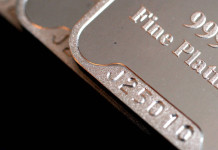
[miningmx.com] — THE three-year wage agreement reached between
Royal Bafokeng Platinum (RBPlat) and the National Union of Mineworkers (Num) was a
“landmark’ development, according to RBPlat CEO Steve Phiri .
Speaking at a presentation on the company’s results for the six months to end-June
on Tuesday, Phiri said the negotiating process had “followed a strategic approach
from the beginning as opposed to the conventional approach of traditional positional
bargaining”.
In terms of the agreement, basic pay increases are structured on a sliding scale over
the three year period with “operational bargaining unit’ employees receiving 10%;
8% and 9% respectively.
Employees represented by the “supervisory bargaining unit’ will get 8%; 7% and 7%
respectively.
Should the rise in the consumer price index (CPI) reach 7% by March of the increase
year, then the supervisory bargaining unit employees will get CPI plus 1%.
Phiri stressed the deal was considered unique because of inclusion of the principle
that “aspects of remuneration are being linked to agreed performance and efficiency
targets”.
Something similar was alluded to in the agreement reached by the Chamber of Mines
and the three main unions in the recent settlement of this year’s gold industry wage
negotiations.
According to a Chamber statement the parties “have finalised a framework
agreement in terms of which they will meet within 30 days to co-design
arrangements aimed at the effective utilization of mining assets.
“The Chamber of Mines sees this as a breakthrough which was the potential to
improve the sustainability of the gold mining industry.’ The gold miners struck a two-
year wage agreement with pay increases ranging from 7.5% to 9% with the minimum
wage at entry level rising 10%.
RBPlat maintained platinum group metal (pgm) production steady for the six months
to end-June at 142,100oz (six months to end-June 2010 – 141,200oz) and increased
total comprehensive income to R248.7m (R180.9m). However, the jump in issued
shares to 163.7m (137.1m) knocked down basic earnings a shares by 20% to 105c
(132c).










